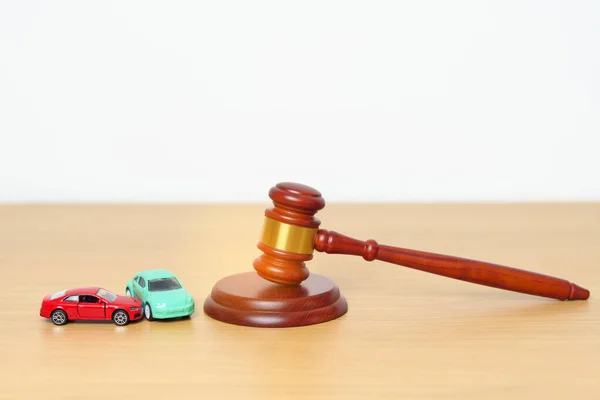California Lemon Law Explained: How It Works And Who’s Eligible
The California Lemon Law, also known as the Song-Beverly Consumer Warranty Act, is a vital piece of legislation designed to protect consumers who purchase defective vehicles. If a vehicle is deemed a "lemon," this law ensures that the manufacturer provides a replacement or refund. Let’s dive deep into how this law works, who is eligible, and what steps consumers can take if they suspect their vehicle falls under this category.
Understanding the California Lemon Law
The California Lemon Law was introduced to protect consumers who buy or lease new and certified pre-owned vehicles with defects that affect their use, value, or safety. Essentially, if a manufacturer cannot repair a faulty vehicle after a reasonable number of attempts, the consumer may be entitled to either a replacement or refund under the law.
What is Considered a "Lemon"?
A vehicle is considered a "lemon" if it has substantial defects covered by a warranty and the manufacturer or dealer is unable to fix the problem after a reasonable number of repair attempts. These defects can include mechanical issues, problems with the vehicle’s engine, transmission, brakes, or electrical systems, among others. However, minor defects like small cosmetic issues or problems that don’t significantly affect the vehicle’s safety or performance usually don’t qualify.
Reasonable Number of Repair Attempts
The law does not specify an exact number of repairs before a vehicle can be classified as a lemon. However, the "reasonable" number of attempts often hinges on the severity of the defect and how it affects the vehicle's use. Typically, the following scenarios apply:
- Serious Safety Defects: If the defect poses a substantial safety risk, such as a faulty braking system, the manufacturer may only have one or two chances to fix the issue.
- Minor Defects: For less severe defects, the manufacturer may have up to four attempts to correct the issue.
- Time or Mileage Limitation: If the vehicle has been out of service for more than 30 days within the first 18 months or 18,000 miles, it could also qualify as a lemon.
Eligibility for California Lemon Law
To qualify under the California Lemon Law, certain conditions must be met. These ensure that only vehicles with legitimate, persistent issues fall under the law’s protection. Below are the key eligibility criteria:

Covered Vehicles
The California Lemon Law applies to new and certified pre-owned vehicles that are purchased or leased for personal, family, or household use. The law covers:
- Cars
- Trucks
- SUVs
- Vans
- Motorcycles
- Boats (with some restrictions)
Additionally, the law covers used vehicles if they were sold with a warranty. The vehicle’s defects must have occurred during the warranty period provided by the manufacturer or dealer.
Defects Must Be Substantial
For a vehicle to be considered a lemon, the defect must substantially impair the vehicle's use, value, or safety. This could include issues such as malfunctioning brakes, transmission problems, or persistent electrical failures. Cosmetic defects or minor inconveniences usually do not meet the criteria.
Defect Must Occur Within the Warranty Period
To be eligible for a claim under the Lemon Law, the problem with the vehicle must occur while the vehicle is under the manufacturer’s original warranty. If the issue appears after the warranty has expired, the Lemon Law typically won’t apply.
What Happens if Your Car Qualifies as a Lemon?
If a vehicle meets the criteria for being a lemon, the manufacturer has several options. The two primary remedies available to the consumer are:
Vehicle Replacement
In some cases, the manufacturer may offer to replace the faulty vehicle with one of similar value and condition. This replacement vehicle should have similar features, and the consumer would not have to pay any additional costs unless there are substantial differences between the two vehicles.
Refund
Alternatively, the manufacturer may offer a refund to the consumer. This refund should include the purchase price of the vehicle, any down payments, monthly payments already made, registration fees, and any related expenses. However, the manufacturer is allowed to deduct an amount for the consumer’s use of the vehicle before the defect was discovered. This deduction is based on the mileage driven before the first attempt to repair the issue.

Steps to Take if You Suspect Your Vehicle is a Lemon
If you believe your vehicle might qualify under California’s Lemon Law, there are specific steps you should follow to protect your rights and build a strong case.
Keep Detailed Records
Document every issue your vehicle has, including descriptions of the problems, dates of repair attempts, and communications with the manufacturer or dealership. Additionally, keep all repair orders, invoices, and receipts. These documents will serve as evidence that you gave the manufacturer a reasonable number of attempts to fix the issue.
Notify the Manufacturer
Before you can take legal action, it’s essential to notify the manufacturer about the vehicle's defect and give them the opportunity to repair it. This notification is typically done through the dealership where the vehicle was purchased or serviced.
Consult a Lemon Law Attorney
Navigating the Lemon Law process can be complex, especially if the manufacturer disputes your claim. In these cases, consulting a lawyer who specializes in California’s Lemon Law can help. Many attorneys offer free consultations and only charge if you win your case, as manufacturers may be required to cover legal fees under the Lemon Law.
Manufacturer’s Obligations Under the Lemon Law
Under California’s Lemon Law, the manufacturer is legally obligated to either replace or refund a defective vehicle if it qualifies as a lemon. However, manufacturers may sometimes attempt to deny or delay a claim. In such cases, consumers can take their complaints to court to enforce their rights under the law.
Court Action
If arbitration is unsuccessful, or if the consumer prefers, they can file a lawsuit against the manufacturer. If the court rules in the consumer’s favor, the manufacturer will be required to either replace the vehicle or provide a refund, as well as cover the consumer’s legal fees.
4655 Cass St, San Diego, CA 92109, United States.
Phone: +1 619-795-9430

